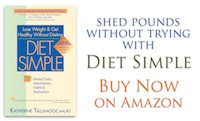What Eggsactly is the Story About Egg Safety
- At March 26, 2019
- By Katherine
- In Articles, News
 0
0
The media thrives on hype and its latest target is the egg, a low calorie, inexpensive, source of protein and hard-to-get nutrients.* It is now being blamed for heart attacks and premature death.
Happily, the overwhelming evidence from many well-respected studies show that it is ok to eat an egg.
The media has focused on a single new study published in the Journal of the American Medical Association (JAMA) that concluded: “Among US adults, higher consumption of dietary cholesterol or eggs was significantly associated with higher risk of incident CVD [cardiovascular – heart – disease] and all-cause mortality [all causes of death] in a dose-response manner.”
However, a well-regarded review of 17 studies found that: “Higher consumption of eggs (up to one egg per day) is not associated with increased risk of coronary heart disease or stroke.”
Further, the recent JAMA study has been criticized for its weak design. Indeed, the authors admitted that they could not rule out other foods or lifestyle issues causing the spike in CVD and death rates. For instance, did the subjects eat eggs with buttered white toast or bacon, as people often do? If so, there is a large body of evidence showing that buttered white bread or bacon would be the more likely offenders in spiking CVD or early death.
JAMA study results stated that there is this flaw. It said: “The associations between egg consumption and incident CVD … and all-cause mortality … were no longer significant after adjusting for dietary cholesterol consumption.
In other words, eggs may have had little or nothing to do with increasing CVD risk, while cholesterol may have.
Besides the admitted weakness, in the JAMA study, there are other unanswered questions:
Did the researchers analyze red meat intake? It is well-established that red meat is associated with increased CVD risk and all causes of death, and red meat happens to be high in cholesterol. Could the cholesterol in red meat have been responsible? The JAMA researchers said themselves that they could not tease out all factors leading to the increased CVD and death rates they observed.
Did they analyze saturated fat content? Saturated fat is a more established culprit behind heart disease, according to a Harvard study (among many others) and the American Heart Association.
Cholesterol is in all animal foods. And, we know that foods like red meat are strongly linked to CVD and all causes of death – and are also high in saturated fat.
In short, the JAMA study did not shed any further light on what foods are responsible for increased CVD. While any number of well-respected studies show that it is ok to eat an egg.
* Here are some ways you may benefit from eating eggs…
Protein. Eggs are considered the gold standard against which other proteins are measured. Because of the superior amino acid mix, an egg’s seven grams of protein are absorbed easily and efficiently used by the body. The egg is also low-calorie (74 calories).
Choline. Yolks are one of the best sources of this essential nutrient. Choline is needed for brain development in a growing fetus and may also be important for brain function in adults.
Lutein and Zeaxanthin. These two, important, beneficial nutrients found in egg yolks (as well as kale and spinach) help prevent eye diseases, especially cataracts and age-related macular degeneration. While eggs contain less lutein and zeaxanthin than greens, they are more absorbable because of the presence of fat in the yolk.
Vitamin D. Eggs are one of the few natural sources of Vitamin D, important for the bones, teeth, and possibly reductions in heart disease, cancer and a myriad of other diseases.
On CNN: An Egg-A-Day Does Not Increase Heart Disease or High Blood Pressure Risk (Breakthrough Study)
- At February 01, 2013
- By Katherine
- In Articles, News
 0
0
My clients regularly ask me, “Should I be eating eggs? My doctor tells me they’re ‘poison,’ and to avoid eggs because they’ll increase my cholesterol.”
My response? “That’s OLD NEWS!” Read the updated scientific reports on eggs and find out why…
Most of the studies I’ve seen conclude that eggs are fine, I’ve reported in “7 Bad Foods That Are Good for You” in The Washington Post & “Eggs Don’t Deserve Their Bad Reputation, Studies Show” in LiveScience.com’s Expert Voices Op-Ed — and may even improve your health, as they contain nutrients difficult to find in other foods (see below). More importantly, a report by Ying Rong of Huazhong University of Science and Technology and her colleagues published in the British Journal of Medicine in January, reviewed 17 different egg studies.
The study concluded, “Higher consumption of eggs (up to one egg per day) is not associated with increased risk of coronary heart disease or stroke. The increased risk of coronary heart disease among diabetic patients and reduced risk of hemorrhagic stroke associated with higher egg consumption in subgroup analyses warrant further studies.”
The bottom line: Your nutritional needs and food choices should be personalized. You should enjoy food and eating, as it is one of the basic pleasures in life!
The much-maligned egg deserves more respect
My grandmother’s favorite food in the whole wide world was eggs (see recipe below). She loved eggs so much, we named an egg cooking style after her. The “grandmommy egg” was soft-boiled for three minutes. As it sat in an egg cup, we would slice off the top third so the runny yolk would form a delicious and naturally creamy sauce for the white.
Unfortunately, during the last decades of her life, my grandmother came to see eggs as poison and avoided one of her real food pleasures. Health authorities were warning the public against eating eggs for fear that they were a major cause of high cholesterol levels — the bad kind, low-density lipoprotein, known as LDL — and increased risk of heart disease.
New studies show that the caution may have been an exaggeration.
Yes, increased blood cholesterol levels can raise the risk of heart disease. Eggs are high in dietary cholesterol. But does eating eggs raise blood cholesterol and cause heart disease? This is where the story gets somewhat complicated, so stay with me, folks, and I’ll try to make sense of all of this.
First, the research
Most epidemiological research — the kind of research that studies large populations over time and analyzes their diets and their health — has found no connection between eating eggs and increases in heart disease. On the other hand, controlled clinical studies — where researchers feed subjects specific amounts of cholesterol and measure the effect on blood — do show a slight increase in blood cholesterol with increases in dietary cholesterol, though how much depends on genetic factors.
Cholesterol is an important component of all human and animal cells and influences hormone biology, among other functions. Since your body naturally has all it needs from producing its own cholesterol, there is no dietary requirement for more cholesterol. But the American diet contains plenty, since we eat a lot of animal products. All animal products contain some cholesterol, but they also contain saturated fat, an even more significant culprit in heart-disease risk.
“The major determinant of plasma LDL level is saturated fat,“said Alice Lichtenstein, professor of nutrition science and policy at the Friedman School of Nutrition Science and Policy at Tufts University.
And while eggs are high in cholesterol (186 milligrams, 184 of them in the yolk), they’re relatively low in saturated fat (1.6 grams in the yolk).
“In most people, for every 100 milligrams reduction in dietary cholesterol, one would predict a reduction in LDL levels of 2.2 points on average,“said Wanda Howell, professor of nutritional sciences at the University of Arizona.
In fact, during my 20 years of counseling people with high cholesterol, just reducing their saturated fat intake to a range of 4 percent to 7 percent of their calories, causes their blood cholesterol levels to plummet (I usually recommend 4% if you need a dramatic reduction in LDL cholesterol) — a double benefit.
Interestingly, people in Japan — consumers of some of the largest quantities of eggs in the world (averaging 328 eggs consumed per person per year — have low levels of cholesterol and heart disease compared with other developed countries, especially the United States. Why? In part, it‘s because the Japanese eat a diet low in saturated fat.
Americans do just the opposite. Research has shown that we usually have our eggs alongside foods high in saturated fat, such as bacon, sausage and buttered toast. This meal pattern raises LDL levels and makes the effect of eating eggs worse than it actually is.
So how many eggs can you eat? That depends on a number of factors. The American Heart Association no longer includes limits on the number of egg yolks you can eat, but it recommends that you limit your cholesterol intake to 300 milligrams daily, or 200 milligrams if you have heart disease or if your LDL is greater than 100. You decide where that cholesterol comes from!
Other experts go further and say an egg a day is fine.
“The amount that one egg a day raises cholesterol in the blood is extremely small, so small in fact that the increase in risk in heart disease related to this change in serum cholesterol could never be detected in any kind of study,“ said Walter Willett, professor of epidemiology and nutrition at Harvard’s School of Public Health.“Elevations in LDL of this small magnitude could easily be countered by other healthy aspects of eggs.“
Based on the research, my recommendation is if you eat a healthful diet, go ahead and eat an egg a day, says Katherine on CNN. On the other hand, if your cholesterol is high and if you eat the typical American diet — high in saturated fat, devoid of fruits, vegetables and fiber — maybe you shouldn’t be eating an egg a day.
But will taking eggs out of an unhealthy diet make a positive difference? Probably not. I can‘t tell you how many times during my career I‘ve heard people say, “I‘ve cut out eggs, but my cholesterol is still high!“The impact of a healthy, balanced diet cannot be denied here.
Good for you
Assuming you’re eating a healthy diet, here are some ways you may benefit by eating eggs.
Protein. Eggs are considered the gold standard that other proteins are measured against. Because of the superior amino acid mix, an egg’s six grams of protein are absorbed easily and efficiently used by the body. The egg is also low-calorie (74 calories).
Choline. Yolks are one of the best sources of this essential nutrient. Choline is needed for brain development in a growing fetus and may also be important for brain function in adults.
Lutein and Zeaxanthin. These two, important, beneficial phytochemicals found in egg yolks (as well as kale and spinach) help prevent eye diseases, especially cataracts and age-related macular degeneration. While eggs contain less lutein and zeaxanthin than greens, these phytochemicals are more absorbable because of the presence of fat in the yolk.
Vitamin D. Eggs are one of the few natural sources of Vitamin D, important for the bones and teeth. Vitamin D aids the absorption of calcium, which is important for the heart and colon, as well.
To bring this all together, here is a recipe that is a regular meal for me any time of the day — quick, easy, delicious, nutritious!
Eggs Scrambled with Onion, Garlic and Sweet Cherry Tomatoes
Servings: 1
Sauté 1/4 sweet onion and a smashed garlic clove over medium-high heat in 1 teaspoon canola or olive oil until almost soft. Add a handful of chopped tomatoes to the pan (or any other vegetables you happen to have, such as chopped spinach, kale, mushrooms or peppers) and cook for another 5 minutes. Turn down the heat to very low. In a separate bowl, whisk two eggs. Pour eggs into the pan containing the onion, garlic and tomato — add 1 ounce low-fat cheese, if you wish. Stir continuously until eggs are cooked. Pour over toasted, whole rye bread.
The Study: British Medical Journal 2013; 346 doi: http://dx.doi.org/10.1136/bmj.e8539 (Published 7 January 2013)
Study Conclusions: “Higher consumption of eggs (up to one egg per day) is not associated with increased risk of coronary heart disease or stroke. The increased risk of coronary heart disease among diabetic patients and reduced risk of hemorrhagic stroke associated with higher egg consumption in subgroup analyses warrant further studies.”
Bottom Line: “Your nutritional needs and food choices should be personalized. You should enjoy food and eating, as it is one of the basic pleasures in life!”
7 So Called “Bad” Foods That Are Actually Good For You
- At May 23, 2012
- By Katherine
- In Articles, News
 5
5
Are you shying away from bad foods that are actually good for you? With all the hoopla about healthful eating, it’s hard to separate fact from fiction.
As a nutrition consultant, I’ve come to realize there is no shortage of surprises and superstitions in the world of nutrition. As a follow-up to my recent Washington Post article, “5 So-Called Health Foods You Should Avoid,” I thought it would be fun to give you reasons to enjoy some of your favorite so-called “bad” foods that could actually be good for you, originally published in The Washington Post…
Gluten and Wheat
They are “the most demonized ingredients beyond high fructose corn syrup and hydrogenated oil,” said Melissa Abbott, culinary director at the Hartman Group, a company specializing in consumer research.
Yet decades of studies have found that gluten-containing foods, such as whole wheat, rye and barley, are vital for good health, and are associated with a reduced risk of diabetes, heart disease, cancer and excess weight.
“Wheat is a good source of fiber, vitamins and minerals,” said Joanne Slavin, nutrition professor at the University of Minnesota. She added that the confusion about gluten, a protein, has caused some people to avoid eating wheat and other grains.
Only about 1 percent of the population – those with celiac disease or wheat allergy – cannot tolerate gluten and must eradicate it from their diet to ease abdominal pain and other symptoms, including the ability to fully absorb vitamins.
One reason wheat-free or gluten-free diets are popular is that people who don’t eat wheat often end up bypassing excess calories in sweets and snack foods. Then they start feeling better, lose weight, and mistakenly attribute their success to gluten or wheat avoidance. Learn more about a gluten free diet and who may benefit from it…
Eggs
Eggs also don’t deserve their bad reputation. In recent decades, their high cholesterol content has been thought to play a role in increasing LDL (“bad”) cholesterol and heart disease risk. But cholesterol in food is a minor factor contributing to high blood cholesterol for most people, and studies have not confirmed a correlation between eggs and increased heart disease risk. The major determinant of LDL (bad) cholesterol is saturated fat, and while eggs are high in cholesterol – 184 milligrams in the yolk – they’re relatively low in saturated fat – about 1.6 grams in the yolk.
Interestingly, some of the biggest egg eaters in the world, the Japanese, have low cholesterol and heart disease rates, in part because they eat a diet low in saturated fat. In contrast, Americans eat eggs alongside sausage, bacon, and buttered toast.
“The amount that one egg a day raises cholesterol in the blood is extremely small,” says Walter Willett, professor of epidemiology and nutrition at Harvard’s School of Public Health. “Elevations in LDL (bad) cholesterol of this small magnitude could easily be countered by other healthy aspects of eggs.” Learn more about eggs…
Potatoes
Potatoes have been blamed for increasing blood glucose levels, insulin resistance, excess weight and Type 2 diabetes. A recent Harvard study that followed large populations and their disease rates linked potato eating with being overweight, blaming it on the blood glucose rise.
But many foods, including whole-wheat bread and whole-grain cereals, cause similar spikes in blood glucose, and are correlated with superior health and lower body weights. How could the higher body weight in the Harvard study be explained? The study lumped all potato products together, including potato chips and french fries, very fattening versions of potatoes usually eaten in large portions alongside hamburgers, hot dogs, and sodas.
“It’s an easy food to attack; but the meal pattern may be the culprit,” said David Baer, a research leader at the Agricultural Research Service of the Department of Agriculture. “Other epidemiological studies have not verified a connection between potatoes and weight gain or any diseases, and no clinical studies have shown a connection.” Learn more about the Harvard study…
Potatoes are a great source of potassium, Vitamin C and fiber that many cultures – Scandinavians, Russians, Irish, and Peruvians – relied on as a nutritious staple for centuries. And they were not fat.
Fruits
People often ask me if fruit is too high in sugar, especially for diabetics. This fear of fruit, I believe, is left over from the Atkins craze, which discouraged eating some fruits on the grounds that they are high in carbohydrates.
Avoiding fruit could actually damage your health. Study after study over many decades shows that eating fruit can reduce the risk of some cancers, heart disease, blood pressure and fruit. Lean how fruit reduces diabetes risk…
Fruit is high in water and fiber, which help you feel full with fewer calories, one reason why eating it is correlated with lower body weight. Even though they contain simple sugars, most fruits have a relatively low glycemic index. That is, when you eat fruit, your blood sugar raises only moderately, especially when compared with refined sugar or flour products.
Several health organizations, including the U.S. Dietary Guidelines, the National Cancer Institute, and the American Heart Association, recommend Americans eat at least five cups of fruits and vegetables a day because of their superior health benefits.
Soy
Though popular for centuries in many Asian cuisines, soy is sometimes seen as dangerous after studies found elevated rates of breast cancer among rats when they were fed a concentrated soy derivative. But studies looking at whole soy foods in humans have not found a connection. In fact, the reverse may be true.
Soy, “when consumed in childhood or adolescence may make breast tissue less vulnerable to cancer development later in life and probably has no effect on breast cancer risk when consumption begins in adulthood,” said Karen Collins, registered dietitian and nutrition adviser with the American Institute for Cancer Research.
Actually, Collins said, the evidence is so strong for protection against heart disease that the FDA allowed a health claim for labels on soy food products.
Alcohol
Alcohol is feared because of the potential for abuse and alcoholism and complications such as liver disease, which are valid concerns.
But decades’ worth of research shows that moderate alcohol consumption “can reduce deaths from most causes, particularly heart disease, and it raises HDL (good) cholesterol,” the USDA’s David Baer said.
Wine may have additional benefits because its grapes are filled with nutrients called polyphenols, which reduce blood-clotting, inflammation and oxidation.
The key is to drink alcohol moderately and with meals. What’s moderation? One serving daily for women and two servings for men, with a serving being 5 ounces of wine, 12 ounces of beer or 1.5 ounces of spirits. Learn more about wine…
Fried Foods
While it’s true that frying food usually increases its caloric content, that doesn’t necessarily make it unhealthful.
As long as food is fried in healthful oil instead of butter, shortening, or trans fat, and it’s eaten in moderation, it isn’t less healthy. In fact, fat-soluble vitamins A, D, E, and K, and heart-healthy, cancer-preventive carotenoids such as beta-carotene (e.g., carrots, sweet potatoes), lycopene (e.g., tomatoes) and lutein/zeaxanthin (deep-green leafy vegetables such as spinach and kale), need fat in order to be absorbed by the body.
“The consumption of certain fats, such as saturated fatty acids and trans fatty acids [fats that are solid at room temperature],is associated with an . . . increased risk of cardiovascular disease. On the other hand, the unsaturated fats, monounsaturated fatty acids and polyunsaturated fatty acids [canola, safflower and olive oils] have significant metabolic benefits and are health promoting,” said the 2010 U.S. Dietary Guidelines Advisory Committee. Learn more about healthy fats…
Read my Washington Post “Local Living” cover story 24 May 2012
and
Eggs Scrambled with Onion, Garlic, Kale and Sweet Cherry Tomatoes
- At March 16, 2012
- By Katherine
- In Recipes
 0
0
Eggs Scrambled with Onion, Garlic, Kale and Sweet Cherry Tomatoes
This is a regular meal for me any time of the day – quick, easy, delicious, nutritious!
Servings: 1
Saute 1/4 sweet onion and a smashed garlic clove over medium high heat in 1 teaspoon canola or olive oil until almost soft. Add a handful of chopped kale and tomatoes to the pan (or any other vegetables you happen to have such as chopped spinach, kale, mushrooms, or peppers) and cook for another 5 minutes. Turn down heat to very low. In a separate bowl, whisk 2 eggs. Pour eggs into the pan containing the onion, garlic and tomato – add 1 ounce low fat cheese, if you wish. Stir continuously until eggs are cooked. Pour over toasted whole rye bread.
Deep Green Leafy Vegetables have the highest antioxidant content of all vegetables. High in fiber, they are rich in minerals, B-vitamins, beta-carotene, and lutein, a compound which may help reduce the risk of age-related macular degeneration (the leading cause of preventable blindness). Absorption of carotenoids, such as lutein, in your body is increased by cooking and by the presence of fat (so cook in a little healthy olive or canola oil!)











